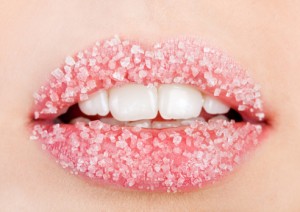Is High Sugar Intake Affecting Your Oral Health?
The World Health Organization may cut their recommended daily sugar intake in half. Should you follow their advice?

What Kind of Sugars Are You Consuming?
The World Health Organization’s recommendation concerns “free sugars,” which consist of natural sugars present in honey, syrup, or fruit juice, plus any type of sugar that is added to prepared foods. Sugars naturally present in unrefined carbohydrates (think brown rice, whole wheat pasta, fresh fruit, etc.) are therefore not included in the recommendation. Yet any type of sugar can negatively impact your oral health. The bacteria present on and around your teeth can feed on the sugars in carbohydrates as well as on free sugars, and still produce the acid that wears away tooth enamel and dentin and causes cavities.
How Often Do You Indulge?
When it comes to your overall health, total sugar consumption is no doubt important. However, when it comes to your oral health, how often sugar comes in contact with your teeth is more important than the total amount of sugar consumed. It’s better to have one big snack than to have several small snacks throughout the day, even if the total amount of sugar is much higher in that big snack. The reason is that each time you have a snack roughly the same amount of food will be trapped in your teeth. By having one big snack you’re only feeding cavity-causing bacteria once as opposed to multiple times.
How Often Do You Brush?
Because brushing your teeth helps deprive bacteria of their food source, change the pH in your mouth, and also introduce fluoride and other substances that fight tooth decay, when and how you brush is very important. The less time that passes between eating sugar and brushing your teeth the better. Of course, you must make sure you are using proper brushing technique and reaching every surface of each tooth if you expect brushing to make a difference.
To sum up, while reducing overall sugar intake can help promote better oral health, it is not necessarily the most effective step to take. The best way to prevent tooth decay is to brush as quickly as possible after eating any kind of food, not just sugar.




